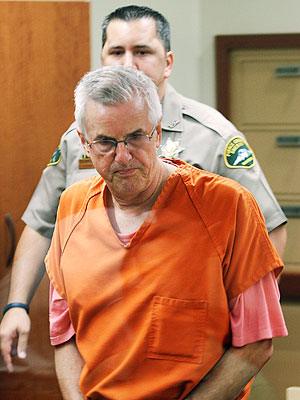Big Soda spent big bucks. That's how it defeated ballot measures to create soda taxes in two California towns.
In Richmond, in the Bay Area, and in El Monte, east of Los Angeles, the measures would have added a penny-an-ounce tax on soda. Had the taxes passed, they were projected to raise millions of dollars aimed at funding local recreation and nutrition activities to fight childhood obesity.
To bury these towns in an avalanche of billboards, mailers and ads, the American Beverage Assn. and friends wrote checks totaling $4.1 million. Supporters of the measures, primarily children's health advocates, spent $114,000.
Big Soda spent $115 per vote in Richmond and El Monte. In comparison, supporters of Proposition 30, the governor's tax measure, spent $5.85 per vote.
It was the most expensive campaign battle ever waged in El Monte. In Richmond, 99% of the funds used to defeat the soda tax poured in from out of state, 95% of them from Washington lobbying firms. Not a single cent for the "no" campaign came from an individual citizen.
Big Soda's sky-high spending was a new low for California. Its political strategists have surely been slapping each other on the back, proud of the strong message they sent to other cities that might consider similar measures.
Richmond and El Monte residents probably would have appreciated it more if Big Soda had spent that pile of cash in a different way, for example, to keep California kids healthy and active. Here's what that $4.1 million could have bought.
Daniel Zingale is a senior vice president at the California Endowment and a leader of its Health Happens Here campaign (www.healthhappenshere.org).
Sources for the graphic (click the image to the left for a larger version):
1,2. Most recent available campaign-funding disclosure forms (through Oct. 20 for El Monte measure; through Nov. 1 for Richmond measure)
3. Vote totals (as of Dec. 5): Los Angeles County and Contra Costa County election officials; for Proposition 30, California secretary of state.
Expenditures: Most recent available data from campaign-funding disclosure forms; for Proposition 30, California secretary of state.
4. MapLight Voter's Edge (Richmond)
5. $100,000 per playground — KaBoom!, Washington
6. $50,000 per mile of bike lane — Pedestrian and Bicycle Information Center, Chapel Hill, N.C.
7. $3,700 per fountain — Global Tap, Chicago
8. California Food Policy Advocates, Oakland
9. Richmond Steelers Youth Football League, Richmond
10. $185.02 per checkup — 2011 fee survey, American Dental Assn., Chicago
11. $31.50 per box of vegetables — Farm Fresh to You, Capay, Calif.
Households in El Monte and Richmond — U.S. Census, 2010
12. $1,000 per Swing-N-Slide Chesapeake Residential Wood Playset — Lowe's, online
13. $1,400 per Kwik Goal Academy soccer goal — Dick's Sporting Goods, online
14. $12.90 per Altus jump rope — Wal-Mart, online











